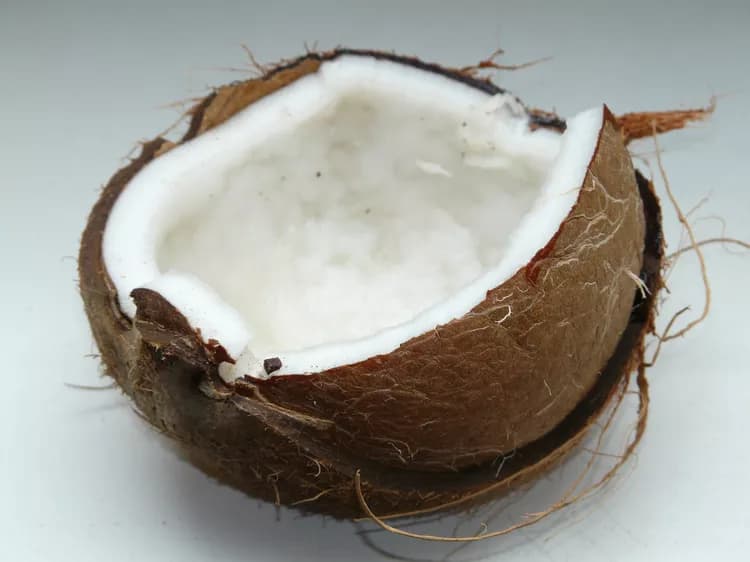
Animal Study: Coconut Oil May Control Overgrowth Fungal Pathogen In GI Tract
A new inter-disciplinary study led by researchers at Tufts University found that coconut oil effectively controlled the overgrowth of a fungal pathogen called Candida albicans (C. albicans) in mice. In humans, high levels of C. albicans in the gastrointestinal tract can lead to bloodstream infections, including invasive candidiasis. The research, published in mSphere, suggests that it might be possible to use dietary approaches as an alternative to antifungal drugs in order to decrease the risk of infections caused by C. albicans.
C. albicans, a common fungal pathogen, is part of the gastrointestinal tract's normal flora and well-regulated by the immune system. When the immune system is compromised, however, the fungus can spread beyond the GI tract and cause disease. Systemic infections caused by C. albicanscan lead to invasive candidiasis, which is the fourth most common blood infection among hospitalized patients in the United States according to the CDC. The infection is most common among immunocompromised patients, including premature infants and older adults.
Antifungal drugs can be used to decrease and control C. albicans in the gut and prevent it from spreading to the bloodstream, but repeated use of antifungal drugs can lead to drug resistant-strains of fungal pathogens. In order to prevent infections caused by C. albicans, the amount of C. albicans in the gastrointestinal tract needs to be reduced.
The team, led by microbiologist Carol Kumamoto and nutrition scientist Alice H. Lichtenstein, investigated the effects of three different dietary fats on the amount of C. albicans in the mouse gut: coconut oil, beef tallow and soybean oil. A control group of mice were fed a standard diet for mice. Coconut oil was selected based on previous studies that found that the fat had antifungal properties in the laboratory setting.
A coconut oil-rich diet reduced C. albicans in the gut compared to a beef tallow-or soybean oil-rich diet. Coconut oil alone, or the combination of coconut oil and beef tallow, reduced the amount of C. albicans in the gut by more than 90% compared to a beef tallow-rich diet.
"Coconut oil even reduced fungal colonization when mice were switched from beef tallow to coconut oil, or when mice were fed both beef tallow and coconut oil at the same time. These findings suggest that adding coconut oil to a patient's existing diet might control the growth of C. albicans in the gut, and possibly decrease the risk of fungal infections caused by C. albicans," said Kumamoto, Ph.D., a professor of molecular biology and microbiology at Tufts University School of Medicine and member of the molecular microbiology and genetics program faculties at the Sackler School of Graduate Biomedical Sciences.
"Food can be a powerful ally in reducing the risk of disease," said Alice H Lichtenstein, D.Sc., director of the Cardiovascular Nutrition Laboratory at the Jean Mayer USDA Human Nutrition Research Center on Aging at Tufts University. "This study marks a first step in understanding how life-threatening yeast infections in susceptible individuals might be reduced through the short-term and targeted use of a specific type of fat. As exciting as these findings are, we have to keep in mind that the majority of adult Americans are at high risk for heart disease, the number one killer in the U.S. The potential use of coconut oil in the short term to control the rate of fungal overgrowth should not be considered a prophylactic approach to preventing fungal infections."
"We want to give clinicians a treatment option that might limit the need for antifungal drugs. If we can use coconut oil as a safe, dietary alternative, we could decrease the amount of antifungal drugs used, reserving antifungal drugs for critical situations," said first author Kearney Gunsalus, Ph.D., an Institutional Research and Academic Career Development (IRACDA) postdoctoral fellow at the Sackler School in Kumamoto's lab.
Related Articles
Test Your Knowledge
Asked by users
Related Centers
Related Specialties
Related Physicians
Related Procedures
Related Resources
Join DoveHubs
and connect with fellow professionals

0 Comments
Please log in to post a comment.